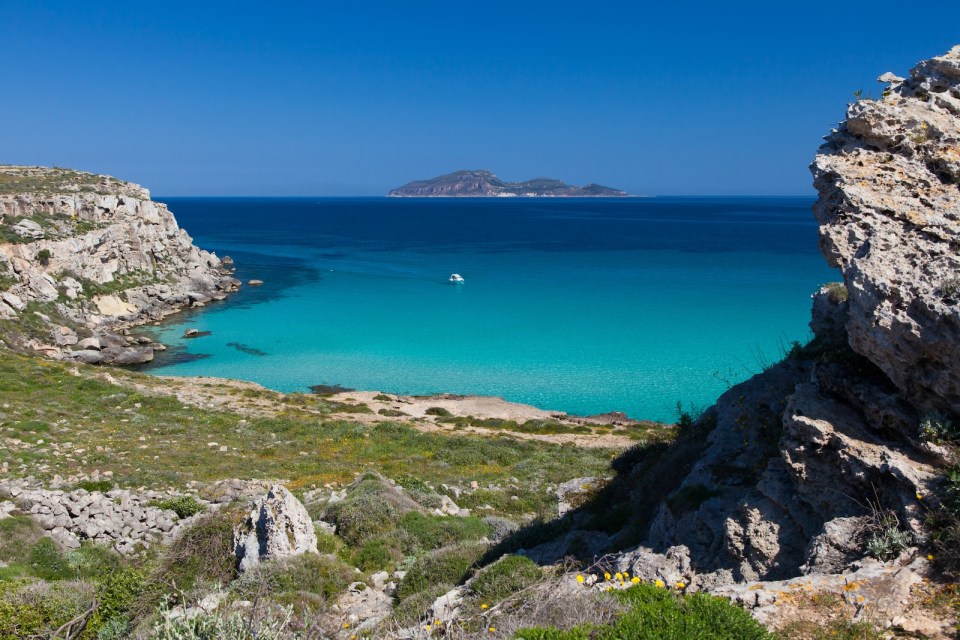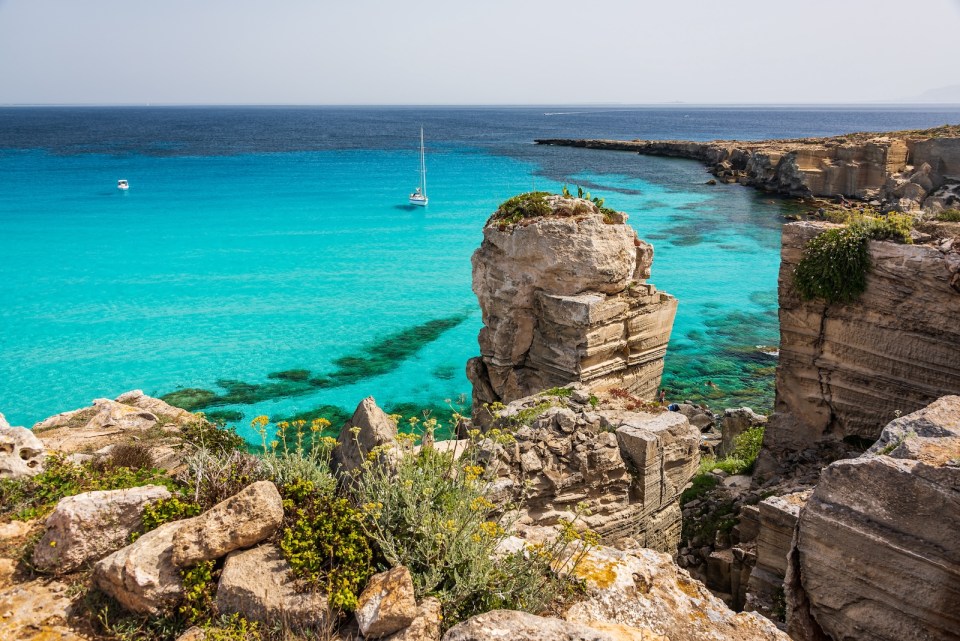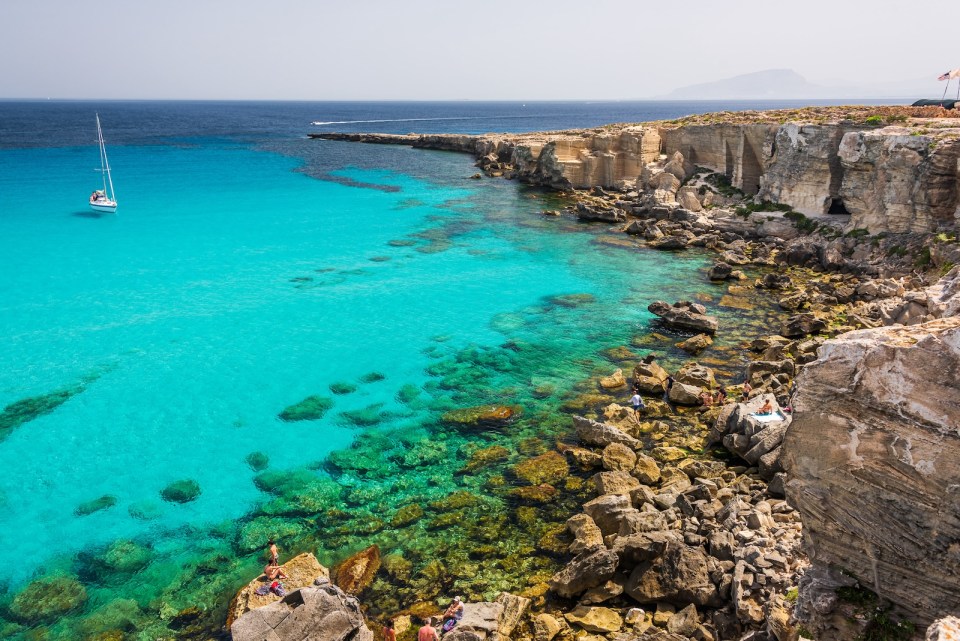The shore in Cala Rossa, one of the beautiful bays in Favignana, one of the Aegadian Islands in Sicily
Photo by depositphotos.com
In 241 BC, a fierce naval battle between Roman and Carthaginian ships resulted in mass casualties. Local lore states, that the carnage was so extreme that the waters off the shore of the island of Favignana—located just a short boat ride away from Sicily—were soaked in blood. A rocky yet placid beach in Favignana is named Cala Rossa—or, ‘Red Cove’—in honor of the historic conflict. The slightly reddish tint of Cala Rossa’s rocks also contributes to its name.

Photo by depositphotos.com
Contrary to its dramatic name, Cala Rossa is one of Italy‘s most peaceful beaches. A rocky shoreline creates several shallow pools where visitors can soak in the sapphire waters of the Tyrrhenian Sea without worrying about being swept away by a large wave. Because Cala Rossa is so rocky, water shoes are recommended for frolicking on the shoreline or in the sea to protect your feet from injury.

Photo by depositphotos.com
Cala Rossa beach is surrounded by rough, imposing blocks of limestone locally known as ‘tuff.’ The island of Favignana was once a thriving tuff quarry. Today, visitors can explore the remnants of former tuff quarries. The ancient blocks of tuff that encircle Cala Rossa beach are excellent for climbing, sunbathing, and picnicking.

The shore in Cala Rossa, one of the beautiful bays in Favignana, one of the Aegadian Islands in Sicily
Photo by depositphotos.com
Even though Cala Rossa isn’t excessively touristy, it tends to get crowded at the height of summer. There are a few drink carts and restaurants in the vicinity, but it is best to come prepared with beach supplies and snacks. Cala Rossa is an excellent spot for snorkeling, thanks to the clear, shallow water. Swimmers and snorkelers can even catch a glimpse of a vibrant coral reef near the shoreline.
The towering rocks and serene aquamarine waters of Cala Rossa will make you grateful that you chose to visit one of Italy‘s most placid and picturesque beaches.
Location on Google Maps.
Related
Click Here to Read the Full Original Article at Unusual Places…
